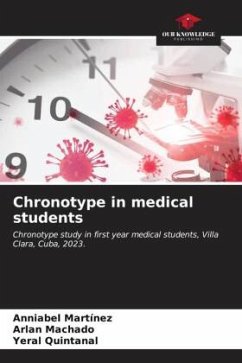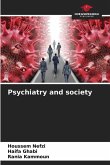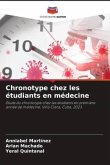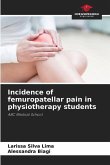A study of 137 first year medical students in Villa Clara was carried out to evaluate the relationship between chronotype, sleep-wake cycle time pattern and levels of physical motor activity in them. The intermediate chronotype predominated. It was also found that the behavioral phenotype is influenced by social obligations and sex. No hourly similarity was found between the actigraphy and the Munich Chronotype Questionnaire but equivalence was demonstrated between its chronotype estimation and that of the Matutinity and Vespertinity Questionnaire.Endogenous control of circadian rhythm does not influence the levels of physical activity displayed.
Bitte wählen Sie Ihr Anliegen aus.
Rechnungen
Retourenschein anfordern
Bestellstatus
Storno








